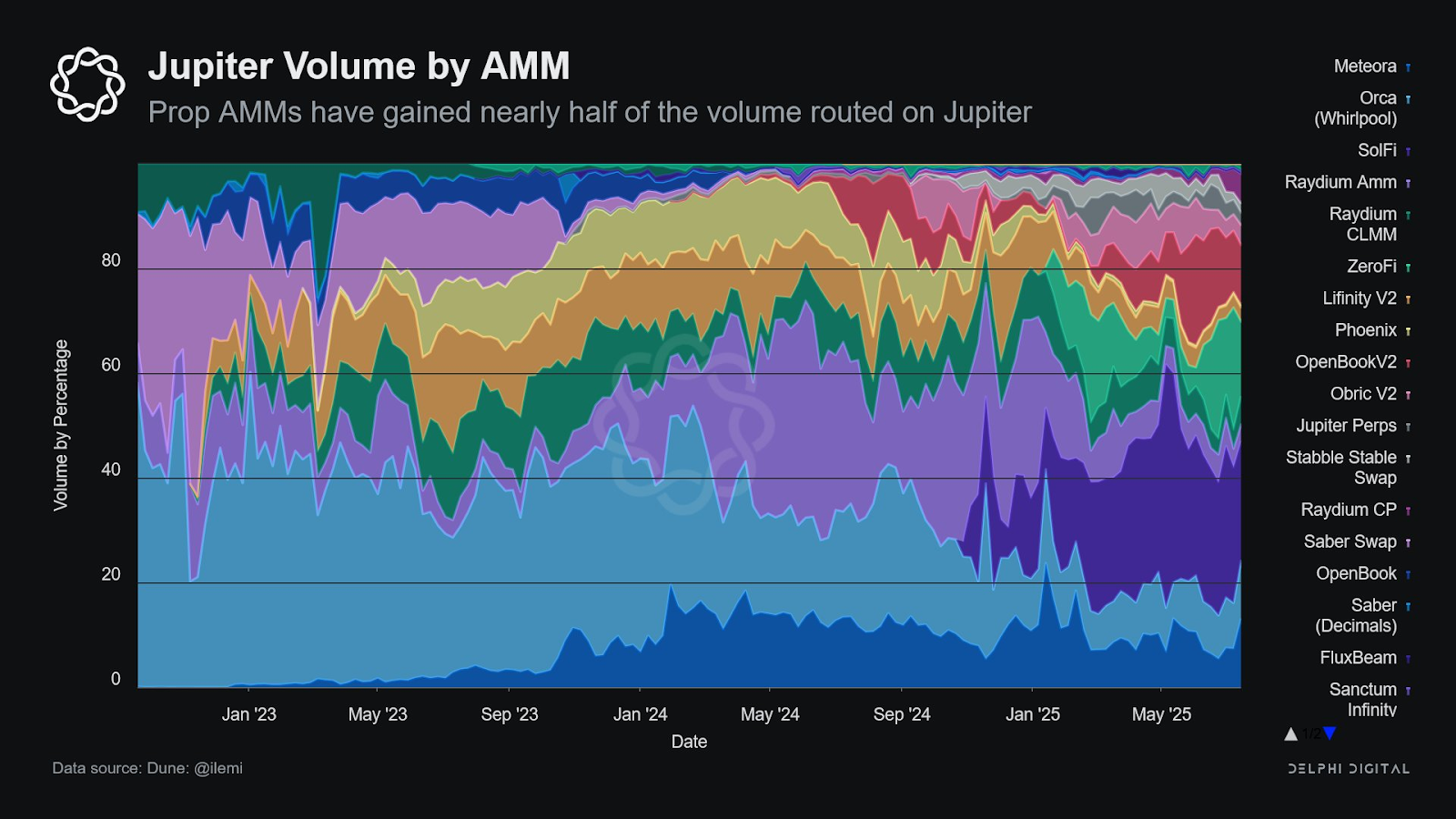In response to Delphi Digital Analyst 0X_Arcana, the biggest distributed trade (DEX) aggregators (TVL) of the Solana blockchain, with whole locks (TVLs), exceeding $2.5 billion, route virtually half of the transaction quantity by way of whole locks (AMMs) of greater than $2.5 billion.
In a publish on July thirty first, analysts revealed that distinctive AMMs similar to Solfi, Zerofi and Obric have quickly gained market share and are closing down prior to now six months, elevating questions concerning the growing centralisation of Solana’s ecosystems.
“Over 40% of all Jupiter buying and selling volumes as we speak are routed by way of prop AMMs similar to Solfi, Zerofi, Obric,” writes 0x_arcana.
Dune Analytics knowledge reveals that Solfi handles 1 / 4 of all Jupiter buying and selling quantity. Zerofi follows intently at 22%, whereas Meteora accounts for round 10%.

Jupiter quantity with AMM
Market effectivity has been improved
Not like conventional AMMs, that are fully open and clear on-chain, distinctive AMMs like Solfi mix personal, chain-off-chain value estimations with on-chain buying and selling execution. They personally cite costs, depend on vault-based liquidity, and solely carry out trades by way of aggregators with out public frontends.
0x_arcana factors out that this shift might create a extra environment friendly market, however it’s separate from the earlier amms model that was clear and allowed. Merchants look like curious about value and execution higher than platform transparency. It will assist your personal AMMs acquire market share.
“We had been in a position to see a divergent market construction – a complicated venue dominating Jupiter’s quantity on one finish, and a V2-style pool like Raydium shoots the tail finish of the asset,” writes 0x_arcana.
Focus threat
Traditionally, AMM offered democratic methods for customers to provide liquidity, however struggled with points similar to capital inefficiency. On the identical time, their public nature uncovered merchants and liquidity suppliers to dangers similar to frontrunning and most extractable values, often known as MEVs.
The proprietary AMM addresses these points by combining on-chain commerce execution with off-chain pricing and personal liquidity administration. Nonetheless, this method can enhance market effectivity, but in addition raises considerations about centralization as liquidity and order flows are targeting a small variety of closed supply entities.
Jupiter Dao additionally confronted governance challenges and suspended all votes till the top of 2025 after a backlash in opposition to the staff’s outsized voting energy. The affect of the staff, which holds 20% of the ten billion Jup Tokens, sparked considerations about equity and belief.
Governance is anticipated to renew in 2026 as Jupiter addresses centralization points each in chains and governance.









